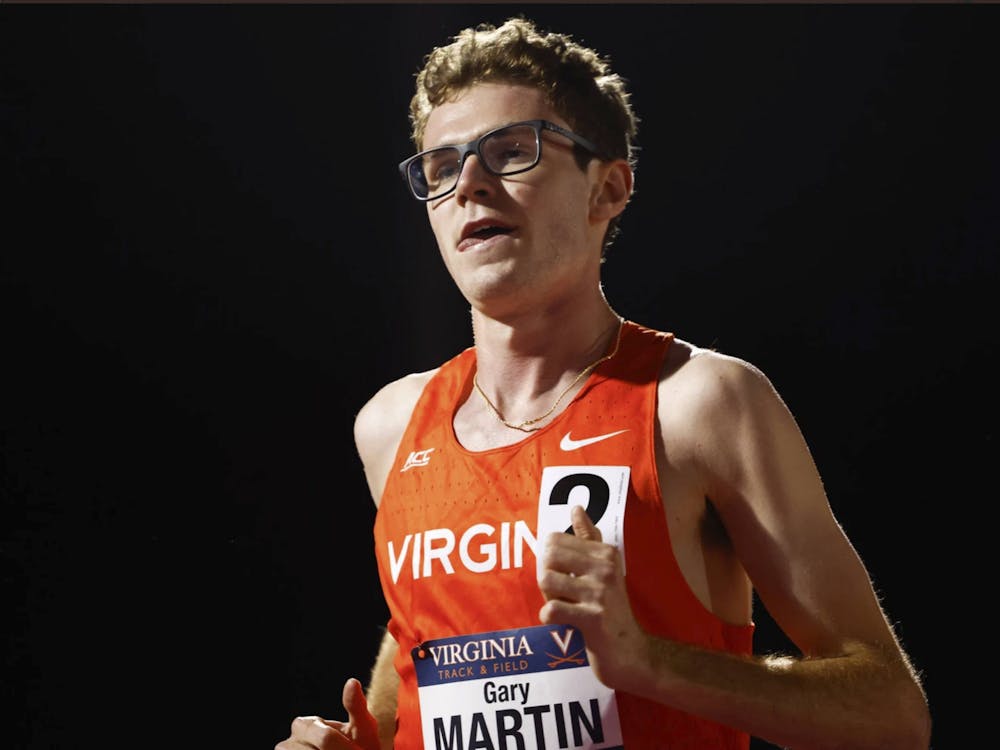Standing at 12-11 overall, 3-6 in ACC play and 7-8 in the month of March — all of which is further punctuated by an embarrassing loss at Liberty Tuesday — Virginia baseball has been majorly disappointing to say the least. Ranked second in the country preseason, the Cavaliers are now staring down the grim reality that they may miss the NCAA Tournament, something they have only done twice since Coach Brian O’Connor took over in 2004.
This massive failure can be attributed to a variety of factors. For one, the program lost many key contributors like shortstop Griff O’Ferrall, catcher Ethan Anderson and outfielder Casey Saucke, all of whom are now with MLB organizations. It also could be poor scheduling that forced Virginia to play against high-quality opponents before settling into the season. However, there is one factor that reigns supreme — the choice to keep playing slumping upperclassmen over younger players has plagued Virginia all season.
O’Connor has rarely had to deal with this type of struggle, and therefore has largely been able to get away being laissez-faire in regards to making changes. With this being just his second ever five game losing streak in 20 years at the program though, this laissez-faire style will be called into question.
This issue largely stems from the massive success of the 2024 roster and how many returnees this team has. By showing what they were capable of in 2024, many of these players earned leeway with O’Connor. But even accounting for this, some of the Cavaliers’ best players that returned after the 2024 campaign are simply not cutting it.
Junior outfielder Harrison Didawick, who tied the school record for home runs in a season in 2024, has just one long ball in 20 games and has a .190 batting average, a full .102 lower than last year. Graduate catcher Jacob Ference, ranked the best catcher in the nation preseason, has just two extra-base hits this season. Junior infielder Luke Hanson, a solid utility piece in 2024, is hitting .203, which is .83 lower than last season.
The solution, simply, is to ride the hot hand and give younger bench bats more opportunities. However, despite the obvious struggles of some upperclassmen, O’Connor has largely refused to replace these struggling upperclassmen with younger talent that have performed well in 2025. Freshman infielder Chone James has batted .400 this season yet has only appeared in 11 of 23 games this year. Junior catcher Trey Wells has outplayed Ference in almost every hitting stat, yet has fewer starts than his older counterpart.
If the Cavaliers are to turn this season around, O’Connor has to recognize that sitting around waiting for upperclassmen to shake their slumps off is not a winning strategy. Virginia has already played some of its easier ACC series against Boston College and California, and went 3-3 combined against the pair. If these older players cannot play well against those teams, they will be blown away by teams like No. 4 Florida State and No. 20 Stanford in the coming weeks.
O’Connor has preached the idea that he is “absolutely demanding a better performance” at this current phase of the season. Yet, he continues to start his struggling veterans even though they have worn through their chances. The Cavaliers are 23 games into the season, and it is make or break time. Resumes matter for the NCAA Tournament, and in 23 games Virginia has not made its case for postseason consideration.
Going further, with athletes transferring schools constantly in the new era of college athletics, showing a lack of trust in freshmen despite good performance may encourage them to leave the program, potentially turning a fluky bad season for the Cavaliers into a years-long issue. Virginia owes it to the young guys to put them on the field if they have the best chance of producing success.
In fact, it has already worked when O’Connor utilizes it. After a good pinch hitting performance in the second game against California, O’Connor let junior outfielder Walker Buchanan start the series finale. He went on to hit a home run in the finale en route to a 11-5 series-clinching victory.
Clearly, rewarding good performance has a positive effect. On the other hand, seeing Buchanan’s arc play out, then actively playing Hanson and Didawick for 11 at-bats against Duke — and that duo hitting a combined 0-11 in the series — is gross negligence on O’Connor’s part. It is time for O’Connor to commit to the strategy for the future of this team.
That means having a real competition between Ference and Wells for the starting spot behind the plate. It means using sophomore utilityman Henry Ford in the outfield instead of at first base so that Didawick gets less time on the field. It means giving James reps at third base over Hanson.
The flashes of this have been there individually, but O’Connor has yet to have a game where he has actively made all of these managerial decisions together, either from the start or in a mid-game swap. In fact, regardless of how “good” or “bad” a managerial decision is, O’Connor has only deployed multiple pinch hitters in a loss by three or fewer runs just once. In a close game, every at-bat counts — and Virginia is not maximizing its chances. Rather, O’Connor is waiting until this team is too far out of games and then expecting pinch hitting to cover massive deficits.
The season moves fast in baseball. Just seven ACC series remain in the regular season. If Virginia cannot find a solution soon, their season will end far sooner than expected.







